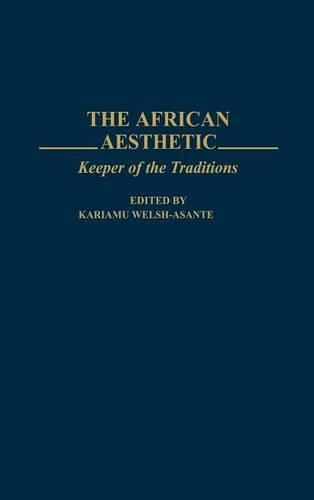
The African Aesthetic: Keeper of the Traditions
(Hardback)
Available Formats
Publishing Details
The African Aesthetic: Keeper of the Traditions
By (Author) Kariamu Welsh
Bloomsbury Publishing PLC
Praeger Publishers Inc
18th February 1993
United States
Classifications
General
Non Fiction
Philosophy: metaphysics and ontology
Philosophy: aesthetics
Cultural studies
111
Physical Properties
Hardback
280
Description
While the field of aesthetics has long been dominated by European philosophy, inquiries have expanded the arena to accommodate different cultures as well as different definitions and meanings. Aesthetics often establishes the pattern that connects culture functions in a society. In African and African American societies it functions as the "keeper of the traditions". The African aesthetic is visible from popular culture to the classical cultures. In all art forms, including body adornment arts, there emerge symbols, colours, rhythms, styles, and forms that function as artistic instruments and cultural histories. While acknowledging African cultural diversity, the focus here is on the commonalities in the aesthetic that make an Ibo recognise a Kikuyu and a Jamaican recognise a Chewa and an African American recognise a Sotho. The deep structure manifest in African cultures in the diaspora is proof of aesthetic continuity. The debate continues over the exact nature of African aesthetics, and in this volume, scholars and teachers in the fields of African and African American studies approach the subject from a broad range of disciplines. Dance, music, art, theatre, and literature are examined in order to appreciate and delineate what the specific qualities and aspects of an African aesthetic might be. Additionally, theoretical concepts and issues are discussed in order to define more clearly what is meant by an "African aesthetic". The term "African" here applies to all Africans, both continental and diasporan, and encompasses historically used terms such as "Negro", "Black", and "Afro-American". This volume is intended to be an addition to the readings of scholars and students in fields ranging from African studies to general philosophy and cultural studies.
Author Bio
KARIAMU WELSH-ASANTE is Associate Professor of African American Studies and Director of the Institute for African Dance at Temple University. Her areas of academic specialization include African aesthetics and culture and African and African American dance, and her published books include African Culture: Rhythms of Unity (Greenwood Press, 1985) rica World Press, 1989) and African Dance: An Artistic, Historical and Philosophical Inquiry.
